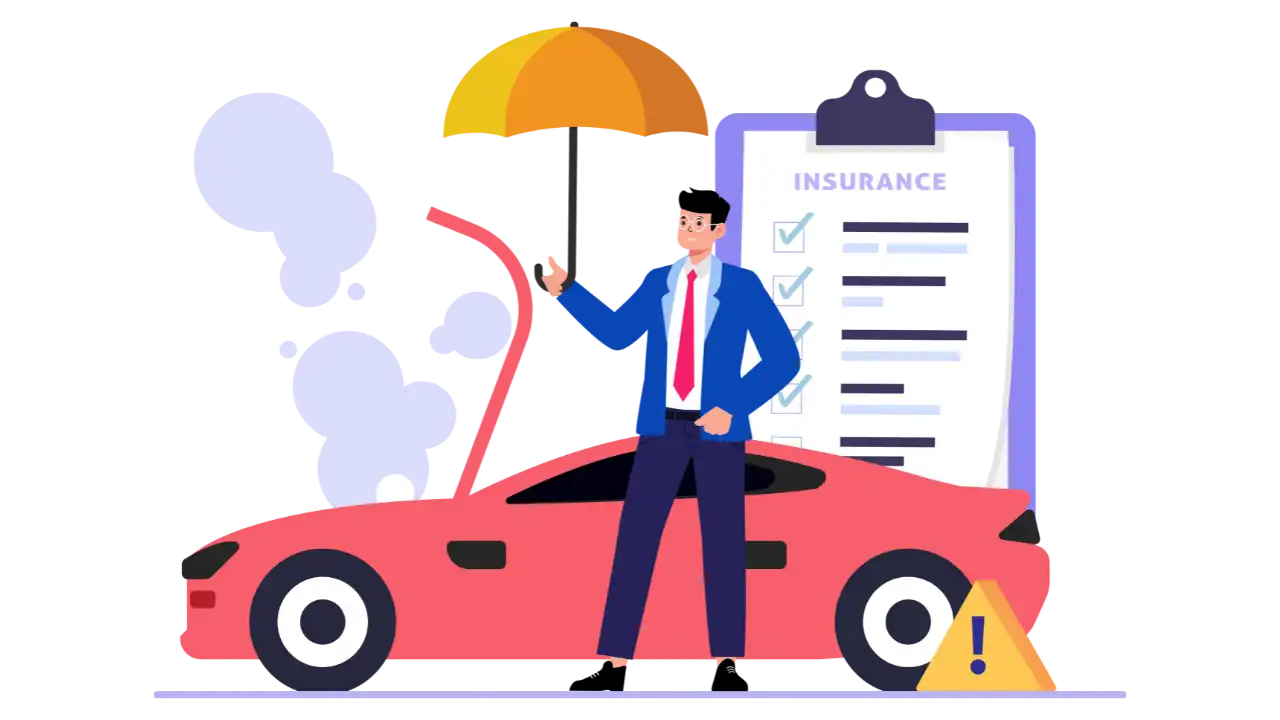Motorhome Insurance or Cheap RV Insurance
When you’re ready to explore the open road in your RV or motorhome, protecting your investment with affordable insurance is essential. Eagle Nation Insurance offers competitive rates that provide peace of mind, ensuring you’re covered for accidents, damages, and emergencies, whether you’re on the road or parked at a campsite.
Choose from basic liability to comprehensive plans with options like roadside assistance, towing, and more to keep you secure during your travels. Get a free quote today and hit the road with confidence.
Choose the right coverage from trusted insurance providers.































Get A Quote For Affordable RV and Motorhome Insurance Today!

When you’re ready to hit the open road in your RV or motorhome, you’re not just looking for a way to travel; you’re investing in a sense of freedom and achievement. Whether it’s to save money on hotels and meals or to have the flexibility to explore at your own pace, the idea of traveling in your self-contained apparatus is more appealing than ever, especially after Covid-19 changed how we think about vacations.
At Eagle Nation Insurance, we offer competitive rates to make sure you get the coverage you need without breaking the bank, providing you with the peace of mind to enjoy your adventures without worrying about unexpected expenses.
What Does RV Insurance Cover?
In most states, self-powered RVs and motorhomes require the same liability insurance you’d get for your passenger vehicles. This means that minimum liability coverage will help pay for medical expenses and property damage costs in the event of an accident, up to your policy limit.
An RV is a serious investment, so it’s essential to protect it properly. Whether you’re covering the basics or seeking more comprehensive coverage, choosing the right plan ensures you’re always prepared, giving you the confidence to go where the road takes you.
What is the difference between a Recreational Vehicle (RV) and a Motorhome?
Understanding the Difference
While many people use RV and motorhome interchangeably, they are not exactly the same. All motorhomes are RVs, but not all RVs are motorhomes. A motorhome is self-propelled and offers many of the same amenities you’d find at home, making it perfect for long road trips and extended stays. On the other hand, the term RV covers a broader range of vehicles, including smaller units like towable campers, which don’t have their own engine and must be towed by another vehicle.
Towable Campers vs. Motorhomes
Unlike motorhomes, towable campers don’t typically need their own vehicle insurance since they’re attached to another vehicle for movement. This is a key distinction when considering insurance options for your RV or motorhome. So while motorhomes require comprehensive insurance, towable campers might only need basic coverage that attaches to the vehicle towing them.
What is RV or Motorhome Insurance?

Understanding RV Insurance
RV or motorhome insurance depends on the specific type of motorhome you’re referring to. For Class A, B, or C motorhomes, you will need at least the state-required minimum amount of vehicle insurance. This coverage ensures you meet the legal requirements to drive on the road, just like any other passenger vehicle.
Extra Protection and Full Coverage
However, many people choose to go beyond the minimum requirements and add more protection for added peace of mind. If your RV gets into an accident, the costs for injuries and property damage can increase quickly since RVs are usually much larger than regular passenger vehicles.
As the decision-maker for your vehicle insurance needs, you can choose the coverage limits. You also have the option to purchase full coverage insurance, which includes liability, collision (covering your damage costs), and comprehensive coverage (protecting against damage caused by things other than car accidents, such as theft or fire).
How Much Does RV Insurance Cost?
Factors Affecting RV Insurance Pricing
The cost of RV insurance varies depending on the coverage you choose for your RV or motorhome, just like with regular car insurance. Several factors influence the premium you’ll be quoted, including your driving record, accident history, and credit reports. Other considerations include your place of residence, marital status, type and age of RV, and even your gender. These factors can impact the overall cost and help insurance providers determine the price for your coverage.
Additional Coverage Options
Additionally, you can opt to add on extra coverage options to protect the contents of your RV and more. Some RV insurance policies offer additional protections such as roadside assistance, windshield repair, and other services that may come in handy during your travels. These added features provide more comprehensive protection for your motorhome.
Are There Discounts Available for RV Insurance?
Ways to Save on RV Insurance
Yes! Just like other forms of car insurance, there are several ways to save on your RV insurance through discounts. One of the best ways to cut down on your premium is by bundling. If you let your insurance company cover both your vehicles and home alongside your RV, they may reward you with a discount.
Security Features and Location Discounts
Another way to save is by considering the safety and security features of your RV. The location where you park your motorhome, as well as features that protect it from theft or vandalism, can help you qualify for additional discounts. Don’t forget to reach out to your Eagle Nation Insurance agent to find out exactly what discounts you can qualify for.
What Types of Recreational Vehicles are Covered by Motorhome Insurance?
RVs and Motorhomes that Require Insurance
When it comes to motorhome insurance, different types of RVs and motorhomes are covered. Generally, Class A, B, and C RVs require insurance before they can be driven on the road. Some of these include:
- Conventional Motor Homes: Class A
- Professional Bus Conversions: Class A
- Non-professional Bus Conversions: Class A
- Camper Vans: Class B
- Mini Motor Homes: Class C
Types of Campers that Don’t Typically Need Insurance
Some campers and trailers don’t require insurance, but you may still want to consider getting coverage for protection. These include:
- Fifth Wheel Trailers
- Conventional Trailers
- Pop-Up Tent Trailers
- Trailer with Recreational Cargo Quarters
- Mounted Truck Campers
While not required by law, adding insurance for these types of towables or pop-ups can provide peace of mind in case of an accident.
Two ways to start your coverage

Quotes online

Talk to an agent
Verified business insurance reviews
Hear from customers like you who purchased insurance.
FAQ’s About RV Insurance
RV or motorhome insurance provides property and liability coverage in case of an accident that causes property damage or physical injury. It ensures that both your RV and its contents are protected, offering peace of mind while traveling or parked.
RV insurance offers a variety of protections, including collision, comprehensive, and liability coverage. It may also cover personal belongings like awnings and satellite dishes. Depending on your insurer and the policy you choose, additional coverage options may include:
- Total loss replacement coverage
- Emergency expenses
- Towing and roadside assistance
- Campsite and vacation coverage
- Underinsured and uninsured motorists coverage
Full-time coverage for RVs used as your permanent residence
RV insurance and auto insurance share some similarities, but they have key differences. At a basic level, RV insurance provides the state-required minimum coverage just like auto insurance. However, RV insurance often takes into account the larger size of an RV compared to a passenger car and the potential damage that could result from an accident.
Additionally, coverage rates may vary based on whether the RV is used for full-time living or part-time vacations. Another key difference is the ability to suspend RV insurance when the vehicle is in storage, a feature not commonly found in auto insurance policies.
RVs and motorhomes are divided into three classes based on their chassis size:
- Class A: The largest RV category, typically up to 75 feet long, includes luxury coaches, motor coaches, and converted buses.
- Class B: The smallest RV class, which includes camper vans, travel trailers, and other cargo van-type vehicles, without a cab-over.
- Class C: This class consists of RVs that use a standard cargo van chassis for the driving portion of the vehicle, with a camper section that extends over the cab. It also includes fifth-wheel vehicles.
The cost of RV insurance depends on various factors, such as:
- The class of the RV
- The usage of the RV (full-time or part-time)
- Your driving history
- The limits and deductibles you select for your policy
- Optional or additional coverage you wish to add
To get an accurate estimate of how much your RV insurance will cost, consider obtaining a free RV insurance quote online or discussing your options with an insurance agent.
In the U.S., motorhomes are required to have at least liability insurance when being driven on the road. However, the legal requirements for other types of RVs vary by state, both in terms of the type and amount of coverage required. It's important to check local laws or speak with a Eagle Nation Insurance agent to ensure that you're meeting legal requirements.
Coverage depends on the type of policy you purchase. Many insurance companies offer rates and coverage options based on how often you use your RV and whether you reside in it full-time or part-time.
The amount of RV insurance you need depends on several factors, including:
- The class of motorhome you own
- State requirements for legally operating an RV
- Your travel plans, such as crossing state or country borders
- Whether the RV will be used part-time or full-time
- Any custom features in your motorhome that might affect repair costs
To ensure you're properly covered, discuss your RV and insurance needs with an agent.
You can purchase affordable RV insurance through Eagle Nation Insurance. They offer competitive rates from top insurance companies. Contact them for a free motorhome insurance quote or call to get a plan that will keep you legal and protected while on the road or at your campsite.

Eagle Nation Insurance gave us the best rate for our motorhome. The process was smooth, and the coverage options were exactly what we needed!